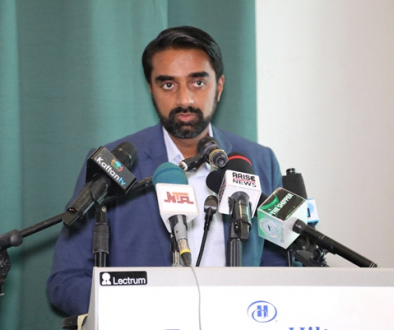Esusu, Adashe & Ajo: Lessons for Corporate Nigeria?
All over Nigeria, it is common to see small contributory savings schemes where market women contribute a daily portion of their trading profit to a collective. What are the characteristics of these groups that make it work and what lessons can corporate Nigeria learn from these groups to ensure that as a group, they maintain high corporate governance standards?
In Yoruba, these saving schemes are called Ajo while it is referred to as Adashe in the north, and the Ibo word for it is Esusu. These group savings serve as a source of borrowing in emergencies, a way to grow savings and a means to achieve a communal goal, etc. At the heart of every collective saving scheme is the clan nature of its members. Sociologist, Emile Durkheim defines a “clan” as an organic association that resembles a kin network but may not include blood relation. Clans are characterized by a strong feeling of solidarity and are governed by long-held traditions. In case of a deviance from the traditions of a clan, they are able to correct their members through peer pressure – there is an implicit understanding that if you benefit from the collective, the collective has a right to redress if you do something that is inimical to the collective. Clans are able to pool risks and share rewards without the strict valuation that a market system calls for or without an intricate system of laws that a bureaucratic form of control requires.
Could a clan mechanism of control be scaled up to get businesses in Nigeria to adopt sound corporate governance practices? What if Nigerian businesses were a clan and each member contributed reputation instead of money? This pooled reputation will give an additional goodwill boost to its members. Companies that underperform with respect to agreed corporate governance standards damage their own reputation and this spills over to the reputation of other members of the clan. This spillover effect provides a strong incentive to all members of this proposed ethical business clan to jealously guard entry into the clan and to ensure that admitted members comply with the traditions of this clan. Such traditions should include integrity, regulatory compliance, transparent reporting, and board independence and sound governance practices.
Alternatively, Nigeria could rely on a bureaucratic system of rules and laws to control corporate governance compliance. In the best case scenario, this will generate compliance with laws that are usually an ethical minimum or in some cases lead to a situation where corporations tick all the right boxes according to the law but apply lower standards in practice. Clans solve the problems inherent in these cases by using social capital and interactions to strictly enforce group traditions.
Clans are not a solely Nigerian phenomenon. The concept of Esusu is also found in Ivory Coast (Nago), Togo (Jojuma), Bahamas (Esu) and among some Afro-Carribean descendants in North America (Susu). There are several other variants of this concept all through Africa, Europe and Asia. For example, the Chinese – American Hui and the Japanese-American Tanomoshi carry out all of the functions of a Wall Street investment bank within their ethnic group. They make loans that would be far too risky for any bank because they are able to obtain, interpret, and evaluate information about potential borrowers in ways that traditional banks cannot. None of their practices are explicit – even the rate of interest paid by borrowers is left unspecified and implicit. Entry into a Hui or Tanomoshi is strictly limited by birthright, a practice that guarantees that each member is a part of a social and kinship network, which will support the values, and beliefs upon which the control mechanism is founded. Also, the global microfinance industry uses clans as a means to ensure that loans advanced to borrowers are paid back. They practice group liability, where a group of individuals are responsible for each other’s loans if one member defaults, versus individual liability, where only the borrower is at risk if they default.
Why do such clans succeed? Principally, it is because they have a fundamental belief that individual interests are best served by a complete immersion of each individual’s interest in the whole. Their common values and beliefs provide the harmony of interest that erases the probability of opportunistic behavior.
A sense that their futures are codetermined motivates members of a clan to embrace the “Unus pro omnibus, omnes pro uno – One for all and all for one” ethos.
Presently, Standard & Poors credit rating for Nigeria stands at BB-, which is considered a speculative grade because the country faces major ongoing uncertainties to adverse business, financial and economic conditions. The entrance of short-term speculative investments has been said to cost the Central Bank of Nigeria up to $0.40 for every dollar of short-term investment in the country
Improved corporate governance practices across board will help to attract sustainable investments, which would contribute to the growth of this nation. A clan mechanism of control is a simple way to achieve this.
Soji Apampa is the co-founder of The Convention on Business Integrity, which sponsors the Corporate Governance Rating System in partnership with the Nigerian Stock Exchange. Email: soji.apampa@cbinigeria.com twitter: @sojapa



